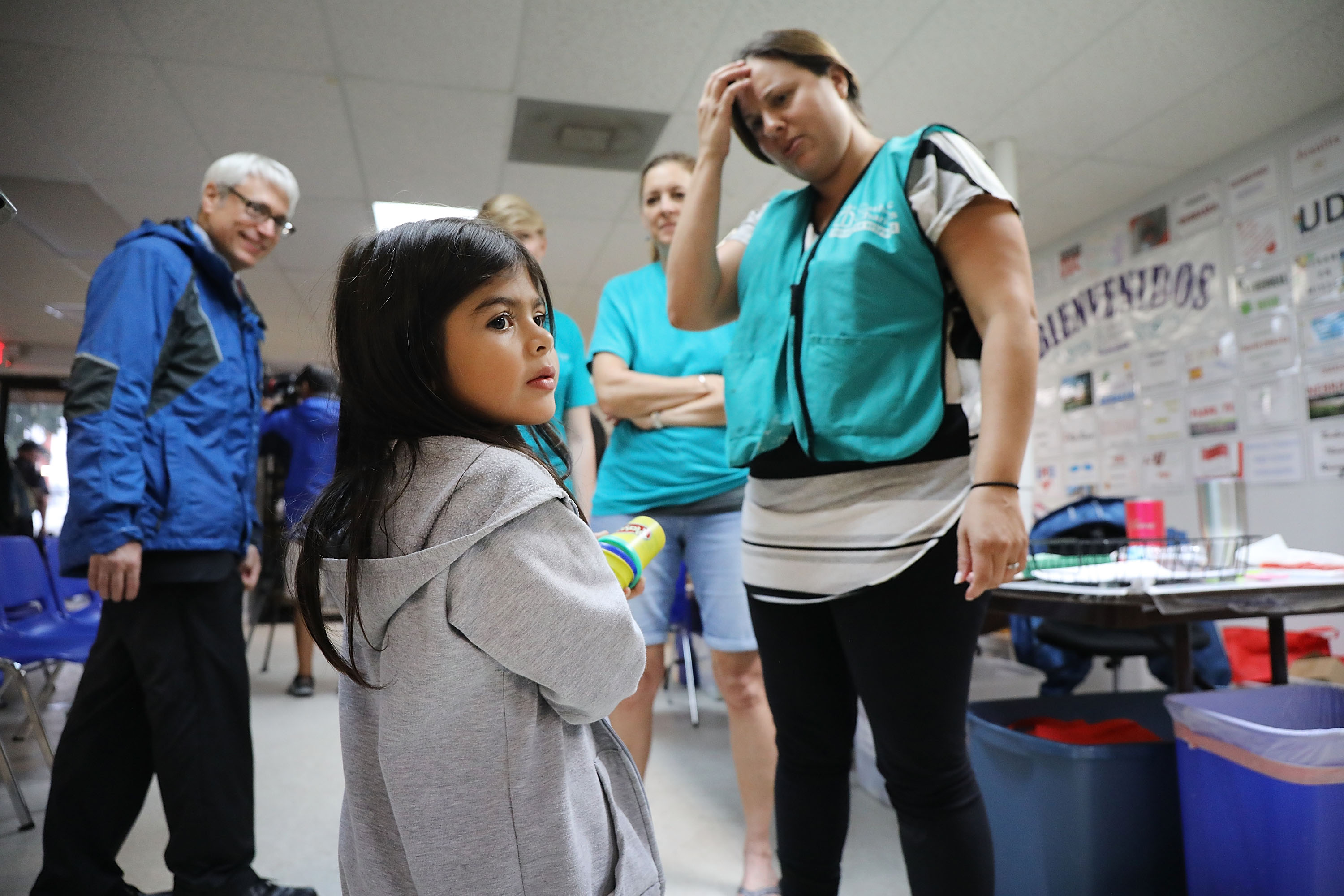In honor of National Immigrants Day, School of Social Work faculty published this brief with the UConn Collaboratory on School and Child Health. Written by S. Megan Berthold, associate professor and the director of field education, and Kathryn Libal, associate professor of social work and human rights and director of the Human Rights Institute, we republish it here.
In recent years, an increasing number of migrant children, largely from Central America, have crossed the U.S.-Mexico border seeking refuge in the United States. They do so for a range of reasons, including fleeing gang and other societal violence, and seeking economic opportunities. In response, the Trump administration’s immigration leadership has created increasingly punitive and restrictive policies to deter asylum seekers, including the forcible separation of children from families, denial of access to legal counsel, and large scale arrests of undocumented migrants, detention, and deportation.
Many migrant children arrested at the border are detained for weeks or months, often in inhuman conditions. In most circumstances, detaining children violates their human rights under international law. The United Nations maintains that detention may only be used in specific and exceptional circumstances as a measure of last resort and for as short a time as possible. Whether accompanied or unaccompanied by parents or guardians, migrant children’s rights in U.S. detention are being systematically violated. Migrant children who were not apprehended at a U.S. border also face harms in the United States, including forcible separation from parents and other family members; fear of being deported or of having one’s parents deported; risk of neglect or abuse within detention, other congregate or foster care; and vulnerability to being trafficked.
Impact of Trauma on Migrant Children
Prior to coming to the United States, many recently arriving minors have already experienced significant trauma in their home countries and during migration. Children’s brains and bodies are still developing, and they are particularly vulnerable to stresses associated with detention. Younger children in particular are less able cognitively to understand what is happening to them. Very few migrant children or their families have access to legal representation, a situation that frequently exacerbates their psychological distress. Detained asylum-seekers are twice as likely to be granted asylum if they have an attorney, while those who are not detained who have legal representation are five times more likely to win their cases than those who represent themselves.
Recommendations
Children and their families have a right to health, well-being, and rehabilitation. This right applies to all people, regardless of age and legal status. An interdisciplinary holistic approach addressing the multifaceted effects of migration-related trauma and the physical, psycho-social, and legal service needs of migrant children is required.
With appropriate health and rehabilitation services and coordinated care, traumatized child migrants have a better chance of recovering from the harmful effects of their experiences and successfully rebuilding their lives. Unfortunately, many child migrants are denied access to these services in the United States; the use of such services may result in their being deemed a public charge and prevent their chance of becoming a lawful permanent resident in the future.
We recommend the following:
- The United States should take steps to ensure that all child migrants in and outside of detention have access to appropriate health care and rehabilitative services.
- The United States should not detain child migrants or subject them to solitary confinement. Instead, the United States should provide them with community-based alternatives.
- The integrity of the family should be prioritized and children should not be separated from their parents or other guardians.
- The Office of Refugee Resettlement and its partners should prioritize child protection and safety in reunification decisions.
- Child migrants should be able to attend public school with no access barriers and should be provided specialized programming that advances their health, well-being, and inclusion.
- Access to legal counsel and to health, mental health, and social services is critical to migrant child well-being.
A substantial increase in funding for health care and programs focusing on rehabilitation is required for the United States to fulfill the substantive requirements of the right to health and rehabilitation.



